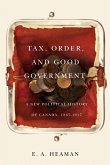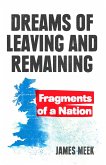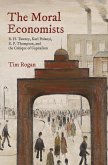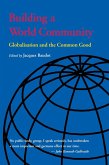Was Canada's Dominion experiment of 1867 an experiment in political domination? Looking to taxes provides the answer: they are a privileged measure of both political agency and political domination. To pay one's taxes was the sine qua non of entry into political life, but taxes are also the point of politics, which is always about the control of wealth. Modern states have everywhere been born of tax revolts, and Canada was no exception. Heaman shows that the competing claims of the propertied versus the people are hardwired constituents of Canadian political history. Tax debates in early Canada were philosophically charged, politically consequential dialogues about the relationship between wealth and poverty. Extensive archival research, from private papers, commissions, the press, and all levels of government, serves to identify a rising popular challenge to the patrician politics that were entrenched in the Constitutional Act of 1867 under the credo "e;Peace, Order, and good Government."e; Canadians wrote themselves a new constitution in 1867 because they needed a new tax deal, one that reflected the changing balance of regional, racial, and religious political accommodations. In the fifty years that followed, politics became social politics and a liberal state became a modern administrative one. But emerging conceptions of fiscal fairness met with intense resistance from conservative statesmen, culminating in 1917 in a progressive income tax and the bitterest election in Canadian history. Tax, Order, and Good Government tells the story of Confederation without exceptionalism or misplaced sentimentality and, in so doing, reads Canadian history as a lesson in how the state works. Tax, Order, and Good Government follows the money and returns taxation to where it belongs: at the heart of Canada's political, economic, and social history.
Dieser Download kann aus rechtlichen Gründen nur mit Rechnungsadresse in A, B, BG, CY, CZ, D, DK, EW, E, FIN, F, GR, HR, H, IRL, I, LT, L, LR, M, NL, PL, P, R, S, SLO, SK ausgeliefert werden.









